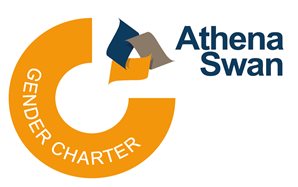 Athena SWAN Charter
Athena SWAN Charter
The Athena SWAN Charter is a framework which is used across the globe to support and transform gender equality within higher education (HE) and research. Established in 2005 to encourage and recognise commitment to advancing the careers of women in science, technology, engineering, maths and medicine (STEMM) employment, the Charter is now being used across the globe to address gender equality more broadly, and not just barriers to progression that affect women.
Engineering and Physical Sciences latest Athena Swan awards
Chemical Engineering, Chemistry, Engineering, Computer Science, Mathematics, have all achieved Bronze Athena SWAN Charter awards.
The awards recognise the commitment made by those Schools to improving the recruitment, retention and progression of female academics in STEMM.
Physics and Astronomy has achieved the Institute of Physics Juno Practitioner Status. This award recognises that the School has taken action to address the under-representation of women in university physics and to encourage better practice for both women and men.
Athena SWAN Charter principles
- We acknowledge that academia cannot reach its full potential unless it can benefit from the talents of all.
- We commit to advancing gender equality in academia, in particular, addressing the loss of women across the career pipeline and the absence of women from senior academic, professional and support roles.
- We commit to addressing unequal gender representation across academic disciplines and professional and support functions. In this we recognise disciplinary differences including:
- the relative underrepresentation of women in senior roles in arts, humanities, social sciences, business and law (AHSSBL)
- the particularly high loss rate of women in science, technology, engineering, mathematics and medicine (STEMM)
- We commit to tackling the gender pay gap.
- We commit to removing the obstacles faced by women, in particular, at major points of career development and progression including the transition from PhD into a sustainable academic career.
- We commit to addressing the negative consequences of using short-term contracts for the retention and progression of staff in academia, particularly women.
- We commit to tackling the discriminatory treatment often experienced by trans people.
- We acknowledge that advancing gender equality demands commitment and action from all levels of the organisation and in particular active leadership from those in senior roles.
- We commit to making and mainstreaming sustainable structural and cultural changes to advance gender equality, recognising that initiatives and actions that support individuals alone will not sufficiently advance equality.
- All individuals have identities shaped by several different factors. We commit to considering the intersection of gender and other factors wherever possible
Athena contacts